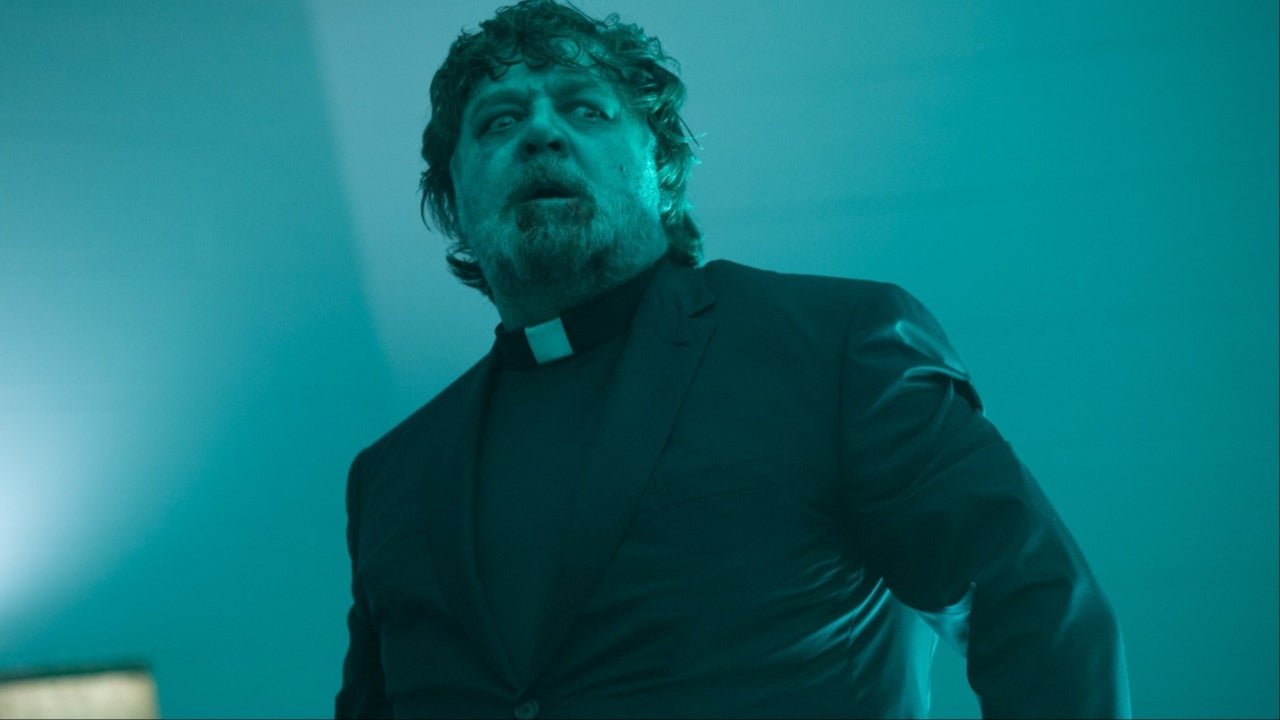It’s virtually poetic how Joshua John Miller’s The Exorcism feels as cursed because the tormented souls it portrays onscreen. From that painfully generic title to a post-production saga spanning practically 4 years – an ordeal caused by COVID delays – this riff on the offscreen troubles of The Exorcist has been marred by weird artistic selections and a complete lot of dangerous luck moreover. Originally slated for streaming beneath the title The Georgetown Project, Miller’s movie has now pivoted to a theatrical launch beneath a brand new, humdrum moniker. (Shudder drew the short straw for its eventual streaming debut.) The Exorcism can be hampered by a surreal coincidence: throughout manufacturing, its lead wound up starring in one other equally titled demon-possession movie, to which The Exorcism might be inevitably, and unfavorably, in contrast. (The two are unrelated, which is extra excellent news for The Pope’s Exorcist.)
With a setup like that (and having watched the film), it is tough to suggest The Exorcism. However, the morbidly curious may recognize its few redeeming qualities. There’s additionally the reliably sturdy presence of Russell Crowe, who anchors the movie even when it will definitely spins out into unintentional chaos. And, not for nothing, Miller employs one or two intelligent visuals to ascertain the meta-ness of all of it, together with an icy monitoring shot that appears to ascertain a stately house just for the digital camera to drag again to disclose a dollhouse set constructed on a large studio lot. In its first half, no less than, The Exorcism reveals promise.
Crowe performs Anthony Miller, a former film star scuffling with private demons effectively earlier than a literal one worms into his soul. Here, the excesses of Miller’s screenplay (co-written with M.A. Fortin) begin to reveal themselves: Anthony’s issues with dependancy are compounded by profound guilt over his spouse’s premature dying, he is estranged from his troubled daughter Lee (Ryan Simpkins), and there is the clumsily executed suggestion that his lapsed Catholicism is because of abuse he endured throughout his time as an altar boy.
Initially, there’s hope for Anthony’s comeback. Just as Lee returns house, he lands the lead in an unofficial remake of a sure iconic horror movie set among the many iconic streetlights and treacherous staircases of Washington, D.C.’s Georgetown neighborhood. (Though by no means explicitly named, the venture’s working title is sufficient to get the purpose throughout: It’s The Exorcist.) Fortune comes with tragedy, nonetheless, as Anthony is barely granted this unlikely alternative after the sudden dying of his predecessor within the function, who perished inexplicably on set after hours.
Crowe stabilizes these early scenes by infusing his character with vulnerability and a glimmering sense of desperation. (It’s fascinating to look at him shuffle round his urbane apartment in flip-flops, repeatedly muttering ostentatious strains from his script.) Miller, recognized for the horror-comedy The Final Girls (additionally co-written with Fortin), instruments with the story’s psychological facets by crafting testy dialogue between Anthony and Lee (“My identify is not ‘Tony;’ it is Dad”) and establishing a hostile work surroundings on set. And whereas Anthony’s interactions with a contemptible director (Adam Goldberg) tease out his darkish, inner battles (and probably function a swipe on the late William Friedkin – who can say?), their tensions fail to escalate as soon as Anthony’s inevitable relapse opens him as much as infernal affect.
Other characters try and deepen the melodrama to various levels of success (if “success” is the phrase we wish to use), like Father George Connor (David Hyde Pierce), a movie advisor for all issues “arcane and/or Catholic.” Pierce brings a wryness that The Exorcism might have used rather more of, whereas Sam Worthington, as Anthony’s youthful, studlier co-star, languishes in a shapeless function. Singer/actor Chloe Bailey fares barely higher as singer/actor Blake Holloway, who has been solid as a model of Linda Blair’s Regan and whose defining character trait is superstition (she burns sage) in addition to a marked attraction to Lee, who’s there to work as a manufacturing assistant.
As the fraught manufacturing ensues and Lee observes her father’s speedy psychological decline, Miller makes an attempt to sow doubt about what’s affecting him. Is Anthony present process demonic possession, because it most assuredly seems to be (computer-enhanced make-up usually makes Crowe come off like his model of Mr. Hyde from Universal’s deserted Dark Universe), or is he merely off his meds and ingesting once more? That doubt is likely to be affordable or compelling had this materials been dealt with extra delicately, however Miller indulges the drained clichés of the standard possession film usually and to his detriment. Doors slam on their very own accord, lights always flicker on and off, faces elongate to unbelievable lengths, modulated voices bellow horrible issues – it goes on like this.
Two fascinating bits of trivia shadow this in any other case dreadfully uninteresting film. First, Joshua Miller is the son of Jason Miller, the Pulitzer-winning playwright who portrayed Father Karras in William Friedkin’s The Exorcist. Second, its “film inside a film” idea, primarily based loosely on the famously rocky manufacturing of The Exorcist, got here from (who else?) producer and Scream creator Kevin Williamson, who felt Miller’s distinctive view of The Exorcist would deliver (and I’m quoting from the press supplies right here) one thing “actually true and emotionally unique” to what grew to become The Exorcism.
You need not know these items to know why The Exorcism would not work as a standard-grade demon film or as a bit of metafictional horror, however they’re helpful to have rattling round in your head must you watch this woefully compromised and haphazardly assembled folly. They recommend one thing much more nuanced and tragic than something Miller and his collaborators managed to conjure: a missed alternative to supply a considerate exploration of household, restoration, and religion, and a stirring, memorable response to maybe essentially the most impactful horror film ever made out of somebody who’s been affected by its imagery all his life. And if that was, the truth is, initially the plan, Miller’s movie solely turns into sadder on reflection.




